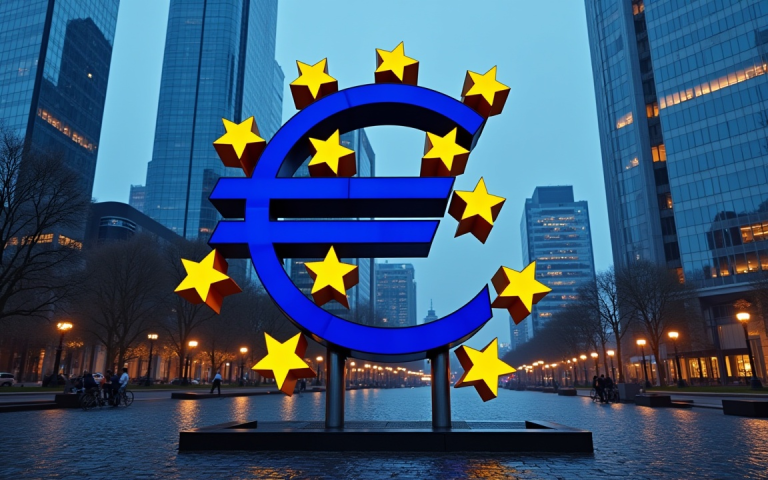The European Central Bank (ECB) is keeping its deposit rate at 2% for now, with policymakers signalling that the next step could be either a cut or a hike depending on upcoming data.
With euro-area inflation stabilising close to the 2% target and confidence in the economy improving, the ECB is taking a cautious stance.
Primoz Dolenc, acting governor of Slovenia’s central bank, said he sees no need for “major shifts in any direction” at this month’s meeting. Attention now turns to September’s decision and fresh forecasts, which will provide clearer guidance on the outlook.
ECB deposit rate remains unchanged at 2% in September
The ECB’s decision to hold rates follows a series of eight consecutive quarter-point cuts before July, when policymakers paused easing.
The central bank is expected to keep the deposit rate at 2% on 11 September, with no strong case yet for further changes.
Dolenc explained that data since June has been broadly in line with expectations, making significant revisions to inflation forecasts unlikely.
Current projections suggest consumer prices will reach 2% in 2027, after falling below the target next year. He added that underlying price pressures are also aligning with this trend.
Inflation outlook mixed as ECB considers next move
While Dolenc emphasised stability in inflation expectations, the ECB Governing Council remains divided.
Executive Board member Isabel Schnabel has indicated there is no justification for additional cuts at this stage, warning that global rate hikes could even begin earlier than markets anticipate.
In contrast, Lithuania’s central bank governor Gediminas Simkus has suggested a December rate cut is possible. He pointed to “many forces” signalling lower future inflation, underscoring the uncertainty that continues to shape monetary policy.
Euro-area economy strengthens despite trade tariffs
The euro-area economy has shown signs of resilience. A prolonged manufacturing slump is close to ending, and business confidence has improved.
At the same time, the European Union’s trade dispute with the United States resulted in tariffs of 15% on nearly all EU shipments to America, slightly higher than the ECB initially expected.
Dolenc noted that higher tariffs could reduce exports and dampen growth. However, he also highlighted that the trade deal itself has lowered uncertainty, which could help support economic activity compared to earlier expectations.
Political instability adds to ECB’s challenges
Domestic politics are another factor influencing the ECB’s outlook. In France, Prime Minister Francois Bayrou faces a likely fall from power as opposition parties reject his fiscal measures, including spending cuts and tax increases.
Bond market tensions have already widened spreads between French and German government debt.
ECB President Christine Lagarde confirmed that the institution is monitoring the situation closely. Dolenc added that while monetary policy does not focus on individual member states, fiscal conditions across the bloc feed into broader financial assessments.
He stressed that the ECB has a full range of policy tools available to respond to any market stress that might emerge.
The post ECB holds interest rates steady at 2% as inflation nears target appeared first on Invezz

